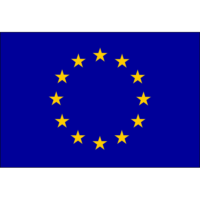A sharp surge in European markets offers a glimmer of resilience amid economic sluggishness, even as regulatory firepower turns squarely on Silicon Valley giants. While investors cheer on financial sector plays like Barclays, heavyweights Apple and Meta feel the sting of Brussels’ tightening grip, setting the stage for a nuanced investment landscape.
European stock markets closed with robust gains, indicating a wave of investor optimism that managed to rise above the region’s fragile economic indicators. The Stoxx Europe 600 rose an impressive 1.67%, while Germany’s DAX surged by 3.00% and France’s CAC 40 added 2.13%. These leaps, underpinned by solid corporate developments, hint at renewed risk appetite across the continent.
One standout was Barclays, whose stock jumped 5.8% after the bank moved to secure funding for a strategic acquisition of OSTTRA, a financial technology platform. This bold move was met with clear investor approval, injecting further momentum into the banking sector and reinforcing the narrative of selective strength within European equities.
However, this optimism was tempered by fresh signs of economic fragility. The latest HCOB Flash Eurozone Composite PMI Output Index dipped to 50.1—just a whisper above contraction territory. Meanwhile, the UK painted a more troubling picture, with the S&P Global Flash UK PMI Composite Output Index dropping to 48.2, confirming economic contraction. These data points underscore the broader concern that while corporate activity remains vibrant in pockets, the underlying macroeconomic environment continues to struggle for traction.
Adding complexity to the outlook was the European Commission’s announcement of a joint €700 million fine levied against Apple and Meta. These penalties were issued under the EU’s new Digital Markets Act, targeting the firms for non-compliance and perceived abuse of market dominance. While the fines represent a drop in the ocean for the trillion-dollar tech giants, the symbolic weight is far greater. It marks a significant escalation in the EU’s push to hold digital platforms accountable, aiming to rebalance competition in Europe’s tech ecosystem.
For investors, this regulatory backdrop introduces a fresh dynamic. While European financials and industrials may be enjoying a moment in the sun, the tech sector faces a potential recalibration. The EU’s clear intent to curb the influence of global digital monopolies suggests a future where compliance risk must be factored into investment theses involving tech players operating on the continent.
Nonetheless, the market’s ability to post broad gains in the face of regulatory headwinds and soft economic data illustrates a resilient sentiment. Investors appear increasingly adept at navigating divergent themes—rewarding bold corporate moves while reassessing risk in areas under regulatory fire.
Barclays’ recent manoeuvres highlight the strategic growth still possible in Europe’s mature markets. At the same time, the EU’s stance on digital governance reinforces its commitment to shaping a fairer playing field—an effort that, while disruptive in the short term, could yield longer-term stability and competitiveness.
Fidelity European Trust PLC (LON:FEV) aims to be the cornerstone long-term investment of choice for those seeking European exposure across market cycles.





































